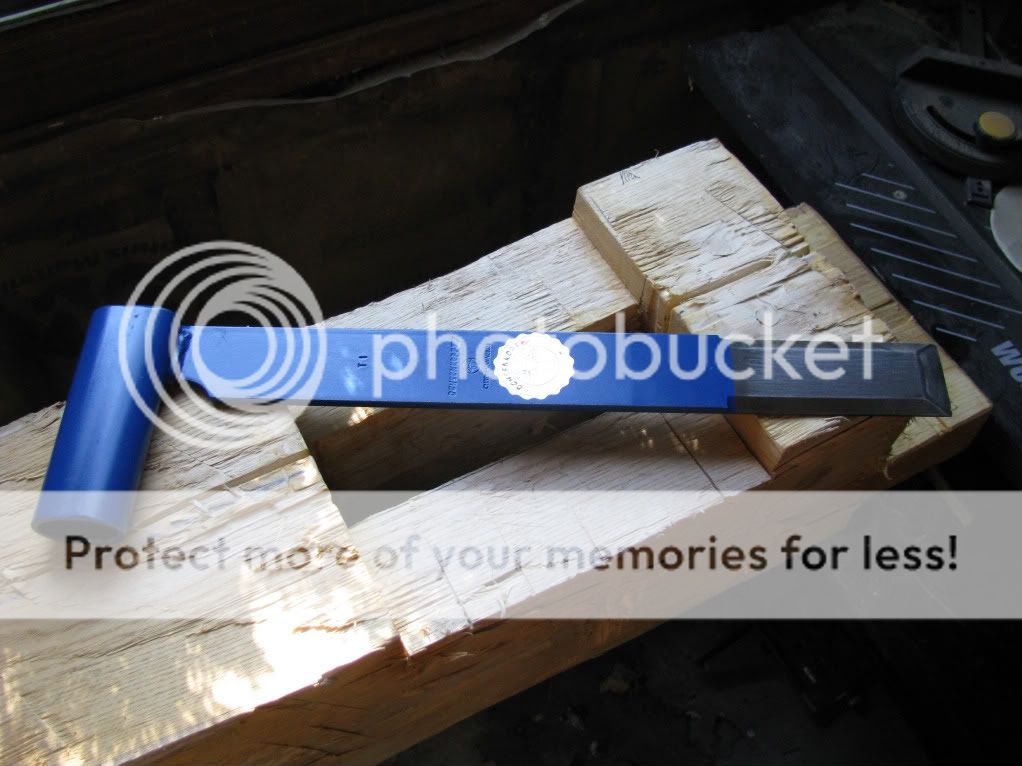TB- I have been meaning to answer Dave's query about what axes for joint cutting, but guess I'll do it here-
There are three I lean on most, all of which I've been using for pushing twenty years. Two of them I call hand axes, (one handed, but a bit bigger and with a longer handle than what I think of as a hatchet ) and tend to always use them interchangeably, one in either hand, switching the user to my dominant left depending on circumstance. The first is a Snow & Nealley Hudson Bay Pattern,
http://www.snowandnealley.com/products/axes/pbka18.htm I like this pattern for chopping joints, I find the strait top and the beard are advantageous for chopping close up to the layout lines. Like some of my other axes I've reworked the bit so it's a bit thinner than it was originally. The small Side Ax I use is an antique made by Garden City and is the finest piece of steel I own, so hard I have to use diamond systems to hone it, but not so much so that it chips easily. It's hung to be swung with my left hand , on a curved handle like you might see on a bigger broad ax. When I'm roughing a joint bigger than a housing, a scarf or a deep dap, I do reach for a two handed ax, but one still on the small side, in the “boys ax” class. 2 ½ lbs and with a handle only about 24” long. I both want to stay close to the work, and to avoid over-penatration by not multiplying the force too much.
I have of course, also experimented with the Mortise Axes I own, so lets revisit that question here -
I stand by my statement above, I don't believe such axes were ever used to cut mortises, at least in the way we think of it, in heavy timber. And that they were and are a logcrafters tool common to the Nordic countries. I'd based this on three things, where in the country I'd come across the most examples, their continuing inclusion in the Gränsfors Bruks catalogs, and the expert use of one filmed in Norway for episode 1313 of The Woodwrights Shop “Timber Building in the Land of the Midnight Sun” - Stave Churches and expert ax-men, not yet out on DVD and no longer any VHS anything here except boxes in the attic.
I did look again when you brought it up, opened up my copy of Ancient Carpenters Tools. Mercer cites the inclusion of the term Mortise Ax in these early colonial records
http://bit.ly/awohpn as evidence that they were used by English colonials. He also describes them as having an alternate name “Post Ax”, and describes their use in making Post & Rail fencing, in cutting out the material between two bores in fence posts to form relatively quick & dirty mortises for the rails. Like many of us, I typically dismiss much of Sloane's writings as revisionism born of supposition, but I think he got it right on pg 63 of Reverence for Wood, this page reprinted on pg 22 of Miles Lewis's fantastic must see collection of photos and drawings on the history of framing -
http://mileslewis.net/pdf/history-of-building/traditional-framing.pdf Also worth your time -
http://mileslewis.net/pdf/history-of-building/puncheons-and-dragons.pdf Some repeated images here, but the section on lifting engines is also a must see -
http://mileslewis.net/pdf/history-of-building/european-develpmts.pdf Some of what I am about to say is supposition. So it may seem somehow overly critical and ironic that I'm about to suggest that many are wrong when they describe the use of mortising axes. But there unfortunately is no way to completely avoid some educated guesswork in doing so.
If you google around, you find a number of emphatic descriptions and drawings of their use, sometimes driven by mallets, mortise chisel like, or even more curiously, to pare shoulders in the cutting of tenons. Sometimes it is suggested that they are found in different widths to accommodate differing tenon widths, (though I would argue this is evidence against, in that examples found 2” and less are uncommon enough to be described as rare) some of these descriptions are found in recently published books.
I now believe the name is not a misnomer. But that the name, the odd shape, and the long defunct use the name is based in, has led to much false supposition. That for some while now folks have been assuming that they were used to cut the still commonly found mortises in historic timber framing. But in truth the name is based only in the crude mortises once so commonly found in post & rail fence. (how may miles of this once existed but has now returned to the earth – How many pairs of hands spent day upon day riving both posts and rails and mortising the posts) Fences and mortises that never entered the mind of those wondering, because such does not really exist any longer.
Much of my assertion however, is not based in supposition. Instead it is based in the long and almost daily use of axes to cut timber frame joinery. It is the daily doing, that teaches how to both best use axes, and conversely, how it was they were not used.


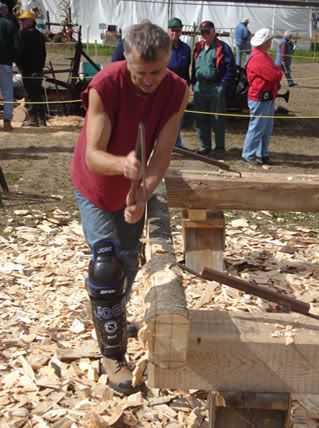
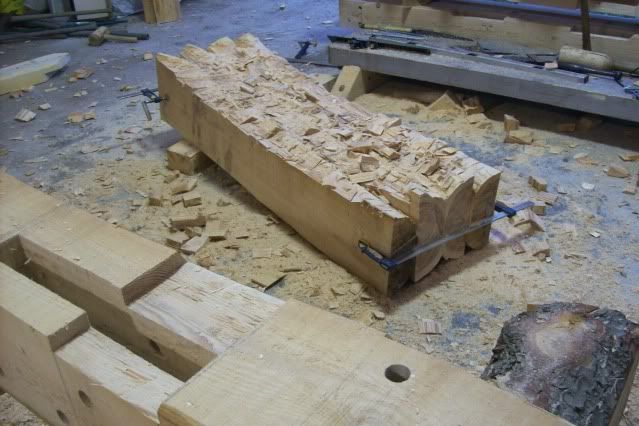
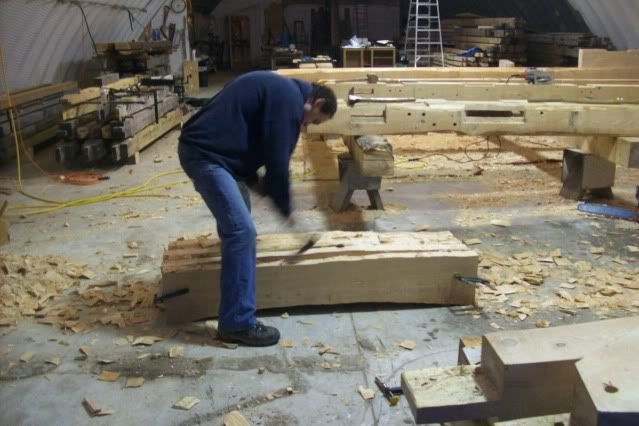
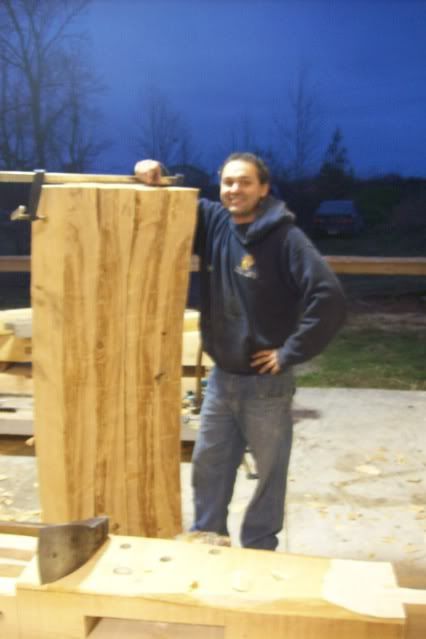
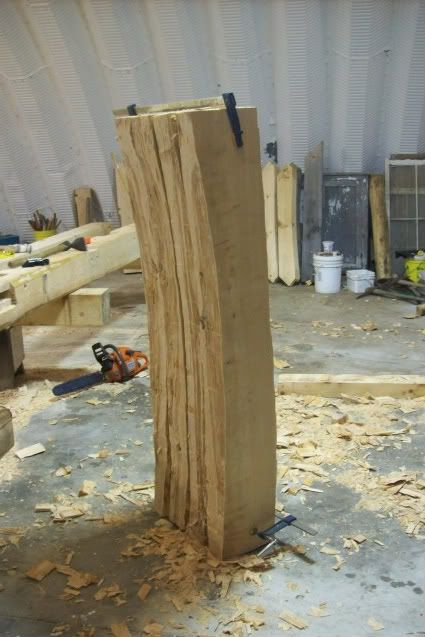
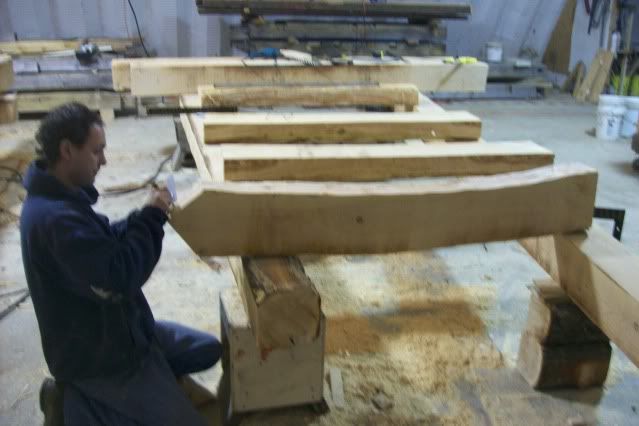
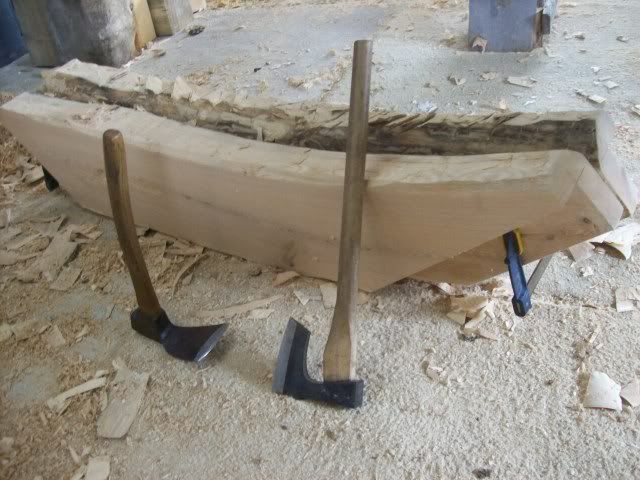
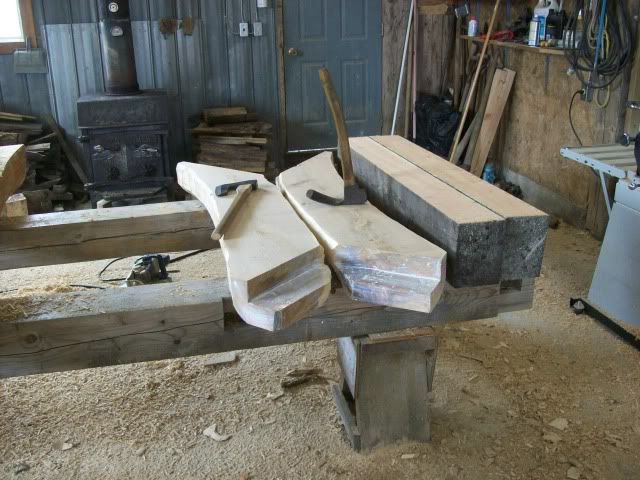

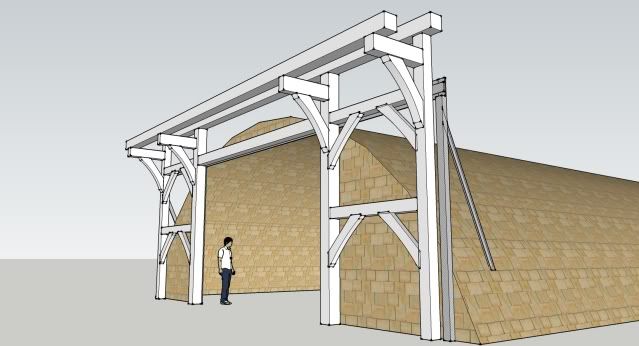

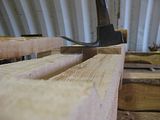
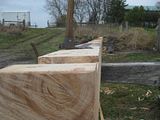

 [/img] [img:center]
[/img] [img:center] [/img] [img:center]
[/img] [img:center] [/img]
[/img] 
 ]mortise axe[/url]
]mortise axe[/url] 